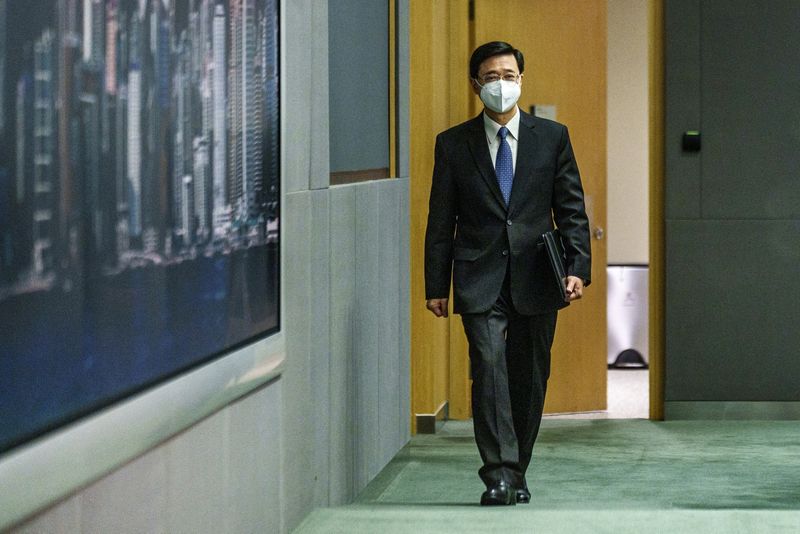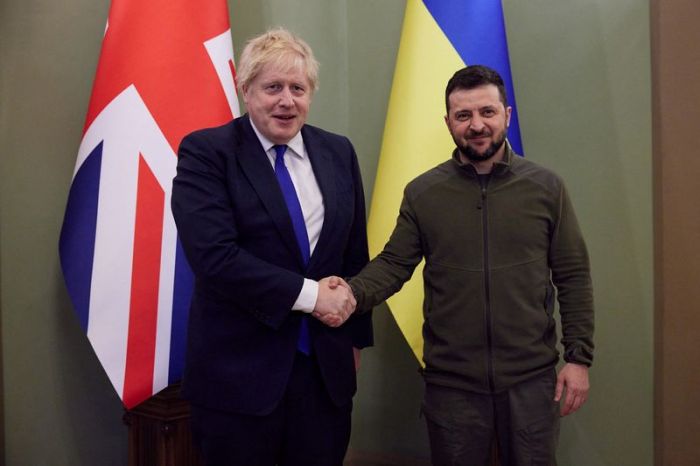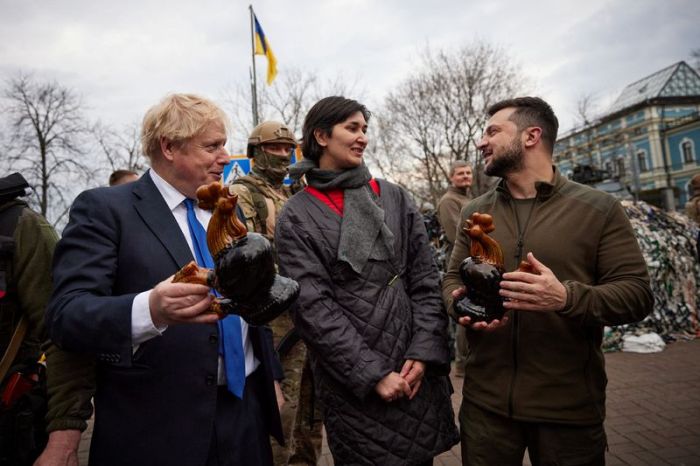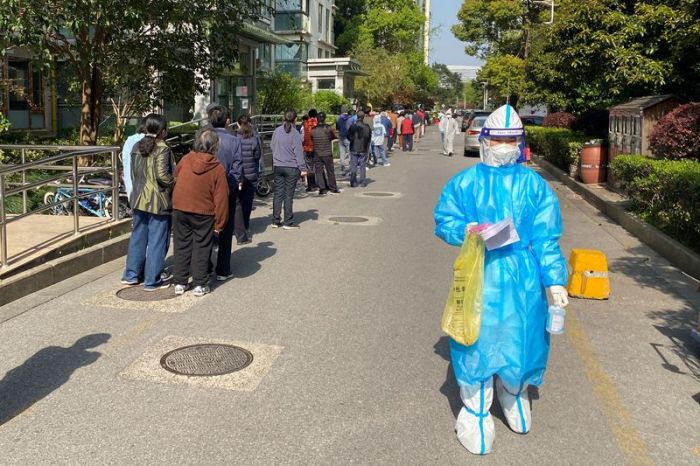HONG KONG (Reuters) -John Lee, Hong Kong’s outgoing deputy leader who will run in a leadership election in May, said on Saturday he plans a new chapter for the city following challenges posed by anti-government protests and COVID-19.
“This will be a new symphony and I am the conductor,” Lee told a press conference.
Incumbent leader Carrie Lam, who has seen her popularity slide during a rocky five years in power, said on Monday she would not seek a second term, citing family considerations.
Lee was Hong Kong’s top security official during the mass pro-democracy protests of 2019. If successful, he will be the first security official to run the Chinese-ruled city since its handover from Britain to Beijing in 1997.
Hong Kong selects a leader every five years under a process that Beijing oversees behind the scenes.
Since 1997, there have been four chief executives, all of whom have struggled to balance the democratic aspirations of some residents with the vision of China’s Communist Party leaders.
HOW DEMOCRATIC IS THE PROCESS?
The city’s 7.4 million people have no say in who leads them. City leaders are chosen in a vote by an election committee stacked with pro-Beijing loyalists, ensuring that Beijing approves the decision.
In a major overhaul of Hong Kong’s electoral system last year to meet Beijing’s demands that only “patriots” run the city, the committee was enlarged to 1,500 from 1,200 members.
Hong Kong’s mini-constitution, the Basic Law, states that full democracy is an “ultimate aim” for choosing the leader.
China’s reluctance to advance democratic reforms has been a lightning rod for the city’s opposition democrats and liberal-minded citizens, stoking both the “Umbrella Revolution” in 2014 and pro-democracy protests in 2019.
After the recent electoral overhaul, many observers say China’s promise to allow full democracy at some point in future will never be kept.
WHO ARE THE MAIN CONTENDERS FOR THE ELECTION?
The election was initially scheduled for March but was postponed because of a COVID-19 outbreak in which more than one million people have been infected, putting Lam under pressure.
Unlike previous times, when likely candidates have signalled their intention to run months in advance, no clear favourite had emerged until Lee confirmed his bid on Saturday.
Lee was known as an anglophile during British colonial rule.
In recent years, he has been forceful in enacting China’s harsher security system – with scores of democrats arrested, jailed or forced into exile, civil society groups forced to disband and liberal media outlets raided by police and shuttered.
Other possible contenders mentioned by media include the city’s financial secretary, Paul Chan, as well as former leader Leung Chun-ying. None has announced a bid.
WHAT ARE THE ARRANGEMENTS?
The election is scheduled for May 8, with the new chief executive to take office on July 1.
In the past, some new chief executives have been personally sworn in by senior Chinese leaders. In 2017, the 20th anniversary of Hong Kong’s return to Chinese rule, President Xi Jinping swore in Lam.
A nomination period for candidates began on Sunday and will last for two weeks, with each candidate having to secure at least 188 nominations from the 1,500-member election committee.
(Reporting by James Pomfret, Greg Torode and Hong Kong Bureau; Editing by Alex Richardson and Christina Fincher)

























